A writing training event initiated by the Master of Literature, Diponegoro University, on Thursday, September 1st, 2022, has been held. As an activity that tries to facilitate and develop the writing skills of Master of Literature students, this event is filled by three competent speakers with different focuses of study.
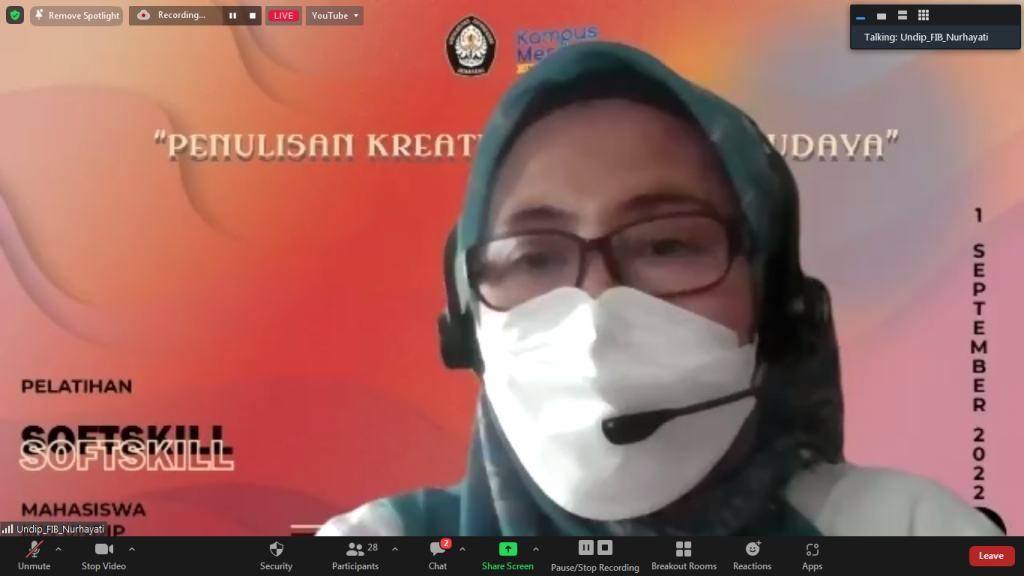
In her remarks, the Dean of the Faculty of Humanity, Dr. Nurhayati, M.Hum., supports the event which aims to increase students’ abilities outside of the courses provided by the curriculum or lecture classes. Softskill, according to her, is one of the activities to improve the quality of Master of Literature students because it is indeed a need for students to continue to improve their writing skills.
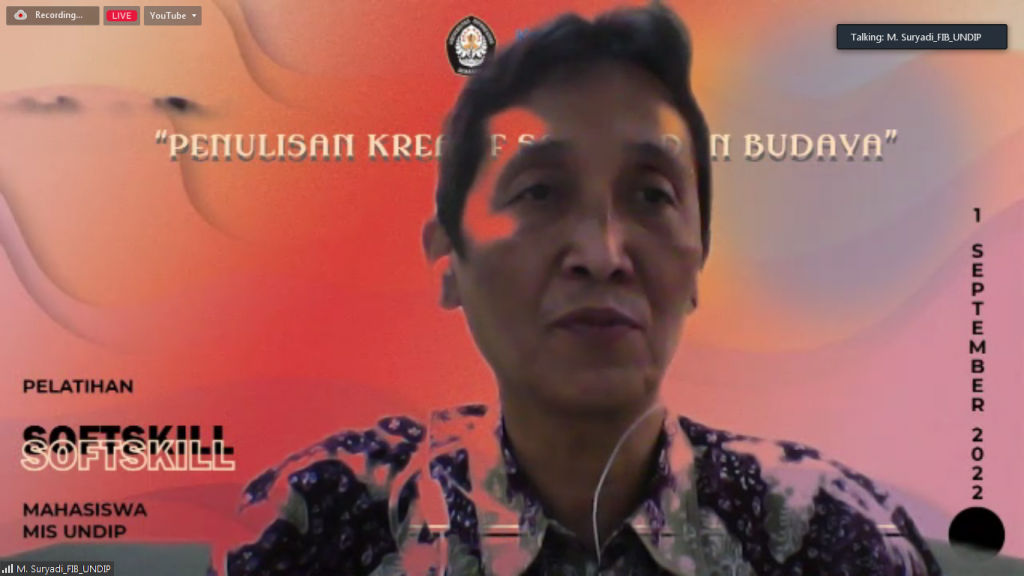
The Head of the Master of Literature study program, Dr. M. Suryadi, M. Hum., said this event was significant. Therefore, this activity is routinely held continuously with the hope that students will obtain the benefits and development of abilities.
In a fluid and intimate way, this literary and cultural creative writing training was led by Dr. Redyanto Noor, M. Hum.
The first speaker, Dr. BB Yosep Margono, M.Sc., gave an explanation about the writing of literary essays and literary works. In his presentation about literary essays, Dr. BB Yosep Margono, M.Si. that literary essays show interesting things. This is because of the position of the literary essay that stands at the scientific as well as a creative boundary that discusses works, history, criticism, or phenomena surrounding literature.
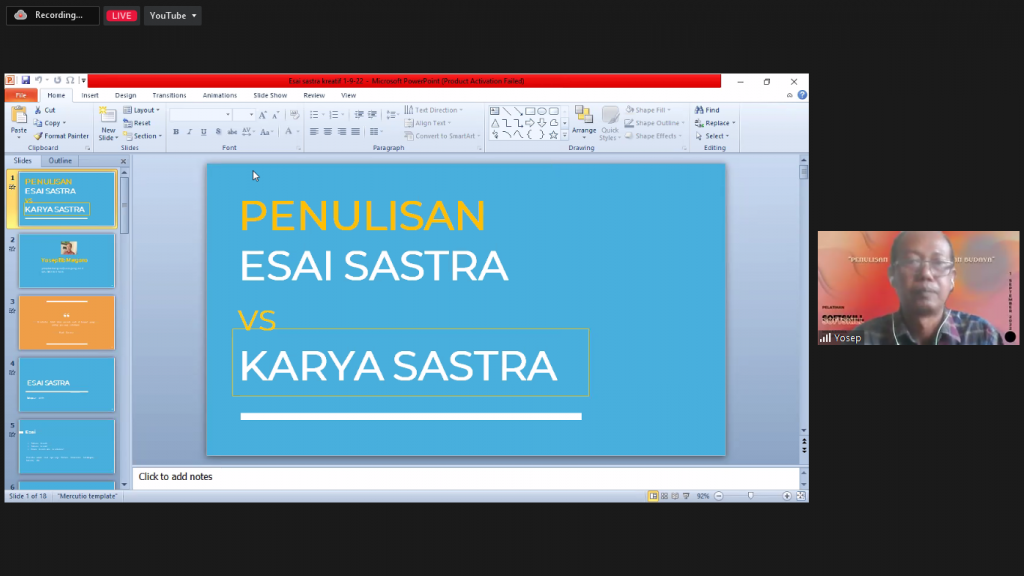
A literary essay, according to the author, is creative scientific writing. This can not be separated from the freedom in it but with a scientific basis for viewing written literary works. Regarding form, literary essays do not have rigid boundaries, but simply follow the rules of the target media. In fact, a good literary essay is very relative. However, several points can be used as a basis for making a literary essay to be considered good: reflecting on the author, not following others, offering something different or new, focusing on the work being discussed, and theory in writing relative according to needs.
In writing literary works, Mr. Yosep said that the creative value in fictional stories written can be closely related to the socio-cultural context. The writing preparation of the writers is undoubtedly different. However, writing ability is certainly influenced by consistency in writing and the number of works that have been read. Things that need to be consistently done for writing literary works include three things: preparation, writing, and editing.
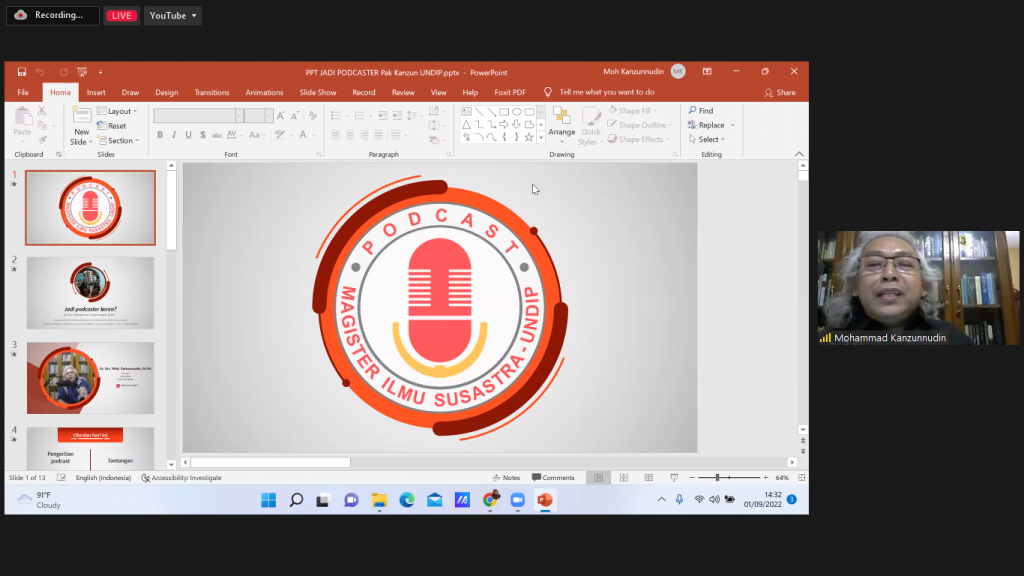
Furthermore, Dr. Mohammad Kanzunnudin, M.Pd., as the second speaker, gave an overview of the ins and outs of podcasts. The presentation of material about this podcast starts from the history, development, and description of the steps to create a podcast. The important points were conveyed by Dr. Mohammad Kanzunnudin, M.Pd. Before starting a podcast, aside from tools and consistency, it’s also important to consider the viral moments of the discussion.
Well, based on the speaker’s speech, of the many existing podcasts, the opportunity to create a podcast still exists. With the foundation of literary disciplines, literary segments that have not received full attention can be filled by literature students in general and especially students of Master of Literature. However, it is important to note that according to the presenter, the opportunity to discuss literature differently can offer an interesting podcast.
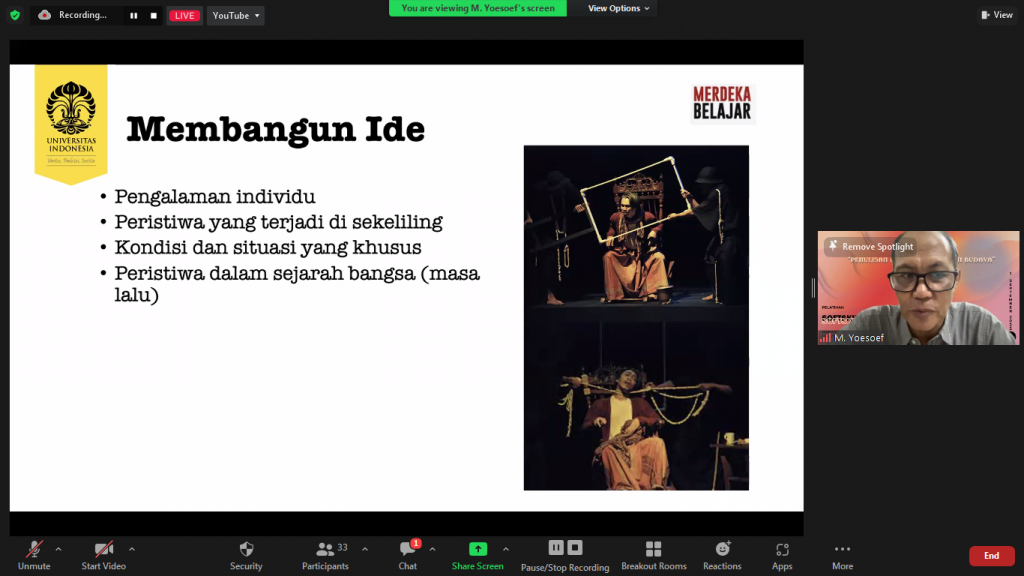
The series of events in this writing training was closed by a presentation by Dr. M. Yoesoef, M. Hum. about drama. Dr. Explanation M. Yoesoef, M. Hum. starting with insight in building drama writing ideas. The idea, according to Dr. M. Yoesoef, M. Hum., can come from many ways and things to be processed into a drama script: individual experiences, surrounding events, historical events, treasures of folklore, adaptation of foreign works, and ecranization of other literary forms.
Continuing his presentation, Dr. M. Yoesoef, M. Hum. provides an overview of drama writing. Planning is the main basic thing which includes planning the plot outline, scenes, settings, and characters. After the planning is designed, the writing process is carried out by taking into account the consistency and dynamics of the drama elements. Then, the writing that has been produced is then simulated to continue to be improved.
The three writing materials presented by three different presenters in the writing training event went very interesting. At the end of the event, each presenter hoped that this training could be useful and motivate students to write creative works.

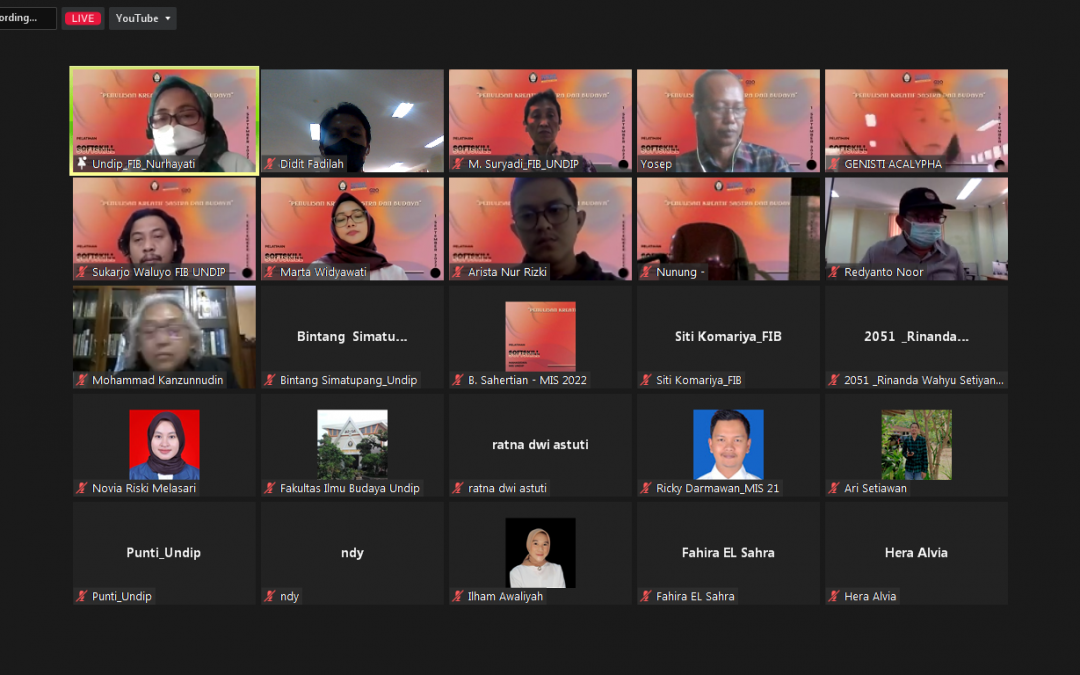
Recent Comments